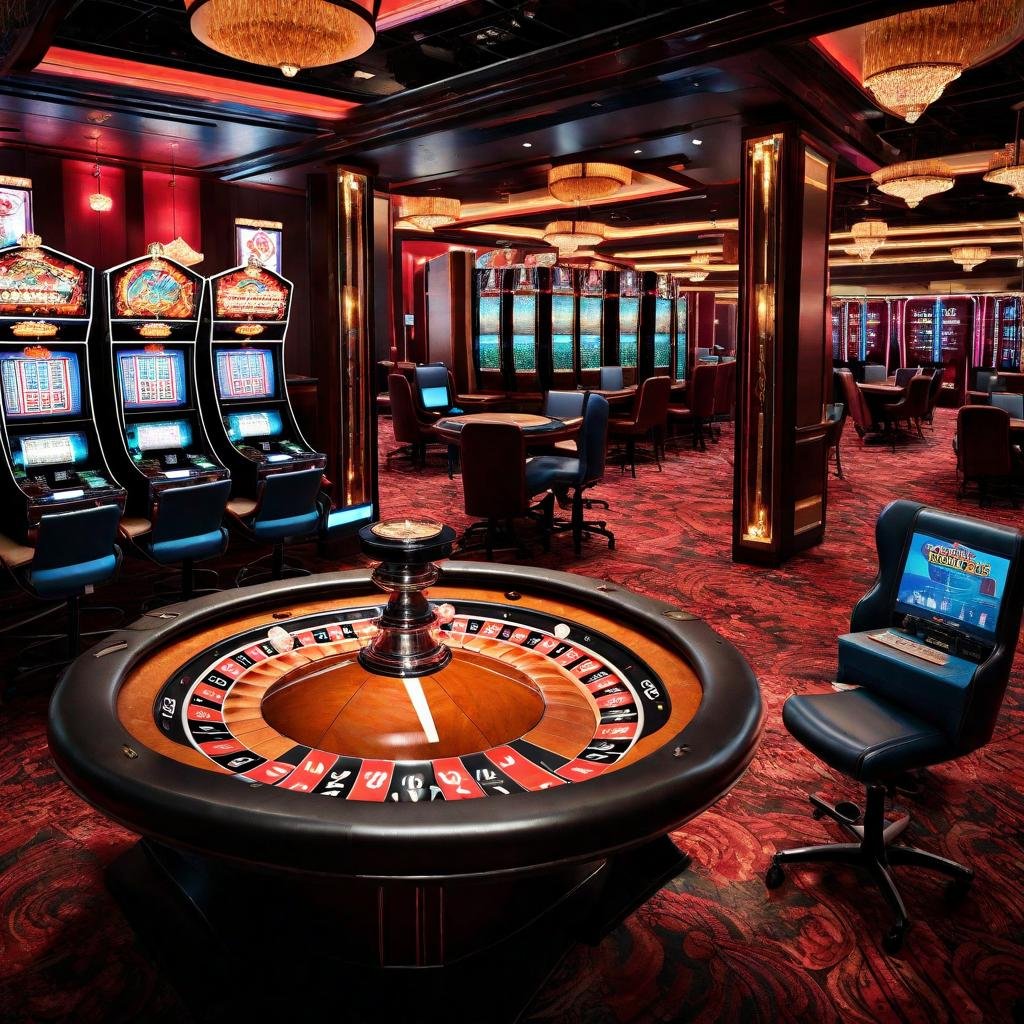
Within the vibrant realm of gambling halls, in which the air buzzes with excitement and the clattering of chips fills the environment, the position of a dealer is both crucial and captivating. Daily, these skilled experts step into a realm where luck and tactics intertwine, guiding players through the highs and lows of their chosen casino titles. gambling sites no verification From card games like blackjack and texas hold ’em to the revolving wheels of roulette, dealers manage the action while ensuring that each game runs smoothly and fairly.
As the sun rises on another busy day, a casino dealer gets ready to immerse themselves in this vibrant setting. Their responsibilities extend beyond just dealing cards or turning a wheel; they are also entertainers, service providers, and keepers of the game regulations. Each workday brings new challenges and interactions, making every day unique in the life of a casino dealer. This insider look will explore the daily routine of a casino dealer, showcasing the skills and experiences that make this profession both exciting and fulfilling.
The Role of a Gambling Table Croupier
A gambling table croupier is at the core of the gambling experience, managing the progress of the play while making sure that players are engaged and enjoying themselves. Their primary responsibility is to manage the game, which includes dealing cards, spinning the wheel, or handling the chips, based on the type of game being played. Croupiers must have a deep understanding of the rules and regulations governing each game, while also maintaining a welcoming and welcoming demeanor to enhance the gaming atmosphere.
In addition to managing the gameplay, dealers must also keep a close watch on the players and the surroundings around the game. This includes watching for any indications of cheating, ensuring that everyone is following the guidelines, and addressing any disputes that may arise among players. Strong communication skills are essential, as dealers often provide explanations about the game’s mechanics and give assistance to those who may be novice to casino games.
Furthermore, a dealer’s role extends past just the mechanical aspects of the play. They play a key part in crafting an immersive experience for the players. This necessitates establishing a connection with patrons, being attentive to their needs, and often injecting an element of fun into the game. It’s this combination of talent, vigilance, and people skills that makes the position of a gambling game dealer both challenging and fulfilling in the dynamic world of gambling games.
Responsibilities and Challenges in Daily Operations
One of the primary responsibilities of a dealer in a casino is to manage the various games available at their table, making sure a smooth and satisfying experience for players. Dealers must be proficient at distributing cards, counting chips, and maintaining the continuity of the game. This calls for a keen understanding of the rules of each game, from blackjack to roulette, and the ability to answer players’ questions while maintaining the game progressing. Attention to precision is crucial, as dealers must track bets, disburse winnings accurately, and watch for any cheating or discrepancies at the table.
In addition to managing the game per se, dealers face challenges such as managing difficult players. The casino environment can be stressful, particularly during intense games, and a dealer must remain calm and professional at all times. They need robust interpersonal skills to handle interactions with players who may be frustrated about losses or dissatisfied with the game’s speed. Handling these situations delicately is essential in ensuring a positive atmosphere on the casino floor.
Another significant responsibility is maintaining the honesty of the game. Dealers must be vigilant and observant, watching for any signs of collusion or cheating among players. This entails not only a solid knowledge of the games but also an awareness of human behavior. They must also adhere to the casino’s regulations and procedures, taking part in regular training sessions to keep updated on rules and protocols. Balancing these responsibilities while providing excellent customer service is what makes the role both difficult and fulfilling for a casino game dealer.
Skills and Qualities for Success
A successful casino game dealer must have outstanding communication skills. This includes merely the ability to explicitly explain game rules and procedures to players but also the capacity to connect with them in a cordial and professional manner. Fostering rapport with customers can enhance the gaming experience and promote repeat visits to the casino. Proficient communication enables dealers to manage tables smoothly while ensuring that players feel entertained.
Furthermore, strong mathematical skills are essential for a dealer. Quick math are often required to keep track of bets, payouts, and game outcomes in the moment. A dealer’s ability to perform these calculations accurately and swiftly contributes to the overall efficiency of the game. This skill helps in maintaining the flow of play and in minimizing disputes or misunderstandings with players, which is crucial in a dynamic casino environment.
Lastly, an ideal casino game dealer should exhibit integrity and professionalism at all times. Trust is a key component of the gaming experience, and players must feel confident that the games are conducted equitably and transparently. A dealer’s devotion to upholding high ethical standards fosters a friendly atmosphere at the table and enhances the casino’s image. Being dependable in behavior ensures that dealers leave a enduring impression on guests, which can lead to a dedicated customer base.